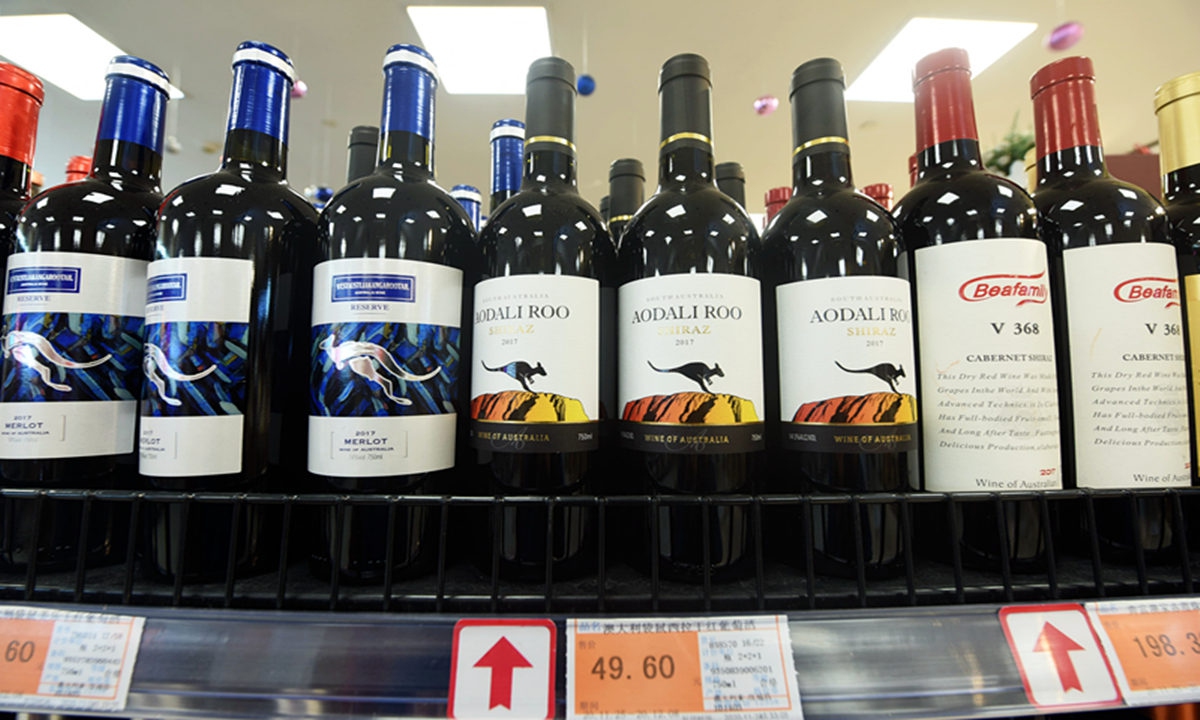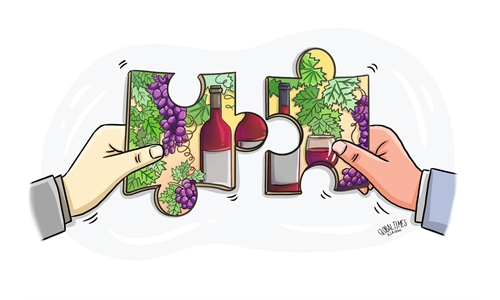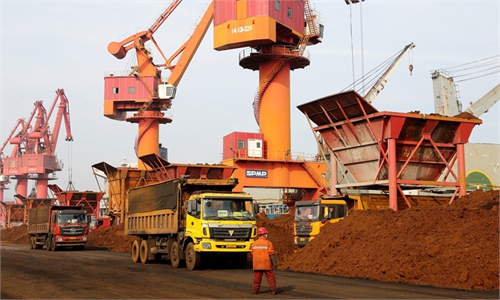Sincerity from Australian side necessary to improve trade relations with China, lift wine ban: analysts

Bottles of Australian wine on the shelf of a supermarket in Hangzhou, East China's Zhejiang Province on November 27, 2020 Photo: VCG
An Australian official said that China could lift the ban on imports of Australian wine early next year. Chinese analysts said that recent signs show improving bilateral relations and recovering trade, but they also warned that Australia needs to show further sincerity to improve bilateral trade.
Industry insiders pointed out that even if Australian wines can come back to China, it will take a long time, and much struggle, to return to the sector's former glory - ranking top in China's wine market in 2019.
"I would be very confident that early in the new year we will get a favorable result from the Chinese authorities to lift the ban on Australian wine. That will be very important for Australian winemakers," Australian Trade Minister Don Farrell told Sky News on Sunday.
Further progress has been made in the past week with suspensions lifted on three Australian beef producers and a review into China's wine imports to be completed within months, Farrell said.
Analysts noted that sincerity from the Australian side is necessary to boost bilateral trade relations. As some Australia curbs on Chinese investment remain, more efforts need to be done to help improve bilateral ties.
The Ministry of Commerce of China started reviewing the anti-dumping and countervailing duties on wine from Australia on November 30. A five-year series of anti-dumping and countervailing tariffs on Australian wines was imposed on March 28, 2021.
The majority of wine customers in China are not "loyal" to specific imported wines, as they just buy what's on the market, an industry insider surnamed Wei told the Global Times on Sunday.
"This can explain why Australian wine saw a skydiving drop of exports to China in 2021 after the anti-dumping and countervailing tariffs were imposed," said Wei.
According to industry statistics, Australian wine accounted for 35.54 percent of China's wine market in 2019, surpassing France and holding the largest market share.
In 2019, Australia exported A$1.3 billion ($870 million) worth of wine to China, which dropped to A$223 million in 2021, according to Wine Australia.
A staffer who used to work for the China office of an Australian wine brand but quit in 2021, told the Global Times that as bilateral relations had deteriorated at that time, it was difficult for Australian wines to enter the Chinese market.
"I went to work for an e-commerce company in China to select imported wines. The competition in the imported wine market is fierce. Recently, the market share of wine from South American countries, such as Chile, grew rapidly," said the staffer, who declined to be identified.
Wei said that much of the market share of Australian wine was taken up by France and Chile.
At present, the top five countries for China's wine imports are France, Chile, Italy, the US and Spain, according to statistics from the General Administration of Customs.
Signs of improved bilateral relations emerged recently, and China-Australia trade has continued to recover and cooperation in some key areas has been strengthened.
For example, China and Australia agreed to expedite trade procedures by the adopting Authorized Economic Operator program starting on Thursday.
Chen Hong, director of the Australian Studies Center of East China Normal University, told the Global Times that such moves will further benefit bilateral economic exchanges amid thawing ties and recovering trade. As international trade involves various parties, the positive move can be seen as a boon to facilitate two-way trade by streamlining trade channels.
In October, China and Australia have reached consensus on resolving their disputes on wind towers under the WTO framework.


